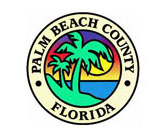The Palm Beach County Commission on Monday approved policies that define equestrian waste and recycling in the Glades Tier and allow an equestrian waste recycling pilot project.
At Monday’s transmittal hearing, Senior Planner Lisa Amara said the amendment proposes an option to establish language for equestrian waste in the comprehensive plan and corresponding revisions to the Uniform Land Development Code. A final reading is scheduled for Feb. 23.
Subsequent applications for specific sites, the first of which will be by Horizon Composting, will be before the Palm Beach County Planning Commission on Feb. 10 and the county commission on Feb. 23.
“This will allow site-specific amendments to apply for equestrian waste in the Glades Tier,” Amara said, explaining that the equestrian industry is a growing component of the county’s economy. “Part of equestrian uses come equestrian waste.”
She noted that a horse can produce 50 pounds of stall waste per day, including manure and soiled bedding.
With 12,000 horses in Wellington at peak season, that means 80,000 to 100,000 tons of waste annually coming from Wellington alone.
“Traditional methods have included composting, burning and transporting either out of the county or tilling into the soil, with U.S. Sugar as one of the major disposal agencies at this time,” Amara said. “However, there are new technologies that have been presented to the staff and the county to recycle the waste into reusable products.”
County staff looked at several companies to recycle the equine waste into different products, but the uses are considered industrial, which are not allowed in the Glades Tier. The companies recycle the waste into reusable bedding and fertilizer.
The Horizon plant, which will be before the commissioners this month, would be located about halfway between Belle Glade and Wellington inside the Everglades Agricultural Area.
Currently, Amara said, the only places for a recycling plant are in the urban area of the county. She explained that the current amendment would allow the use in four sites in the county’s western agricultural areas.
The sites must be self-contained and comply with all best management practices for equestrian waste.
“The reason that we are doing this as a pilot program is that we want each one of these sites to go to the board for individual approval,” she said. “We were very apprehensive about introducing the entire EAA to uses just through a zoning regulation.”
The request was modified slightly between transmittal and adoption through discussions with the Village of Wellington.
“We had proposed initially that there was a requirement for a connection to composting, but some of these businesses might not have that, but we did think it was important to continue the concurrent zoning application aspect,” she said.
Amara said the amendment is necessary to accommodate new technologies that might have industrial attributes but may help protect waterways from pollution and allow equestrian waste management near its source.
She credited a report by former Loxahatchee Groves Councilman Dr. Bill Louda about the contamination of the water supply from illegal dumping of equestrian waste.
“We feel that this will allow an option that is more environmentally friendly to traditional methods of disposal,” she said.
Commissioner Mack Bernard asked why the waste is not being taken to the Solid Waste Authority, and Amara said that the SWA has a tipping fee, plus the hauling distance is prohibitive.
“They can bring them to the SWA and there is a waste-to-energy [plant where] it can be burned,” she said. “The most popular one seems to be U.S. Sugar, where it tills it into the soil for fertilizer.”
Amara added that there are areas already approved for the use in eastern Palm Beach County, but the transportation cost and concerns about odors are prohibitive.
Vice Mayor Melissa McKinlay said the distances from Wellington to the SWA center are burdensome for waste haulers, although it has reduced the tipping fee for equine waste haulers.
“The other issue is with the air permit that the Solid Waste Authority has,” she said. “They are limited on the amount of horse manure that they can take in at that facility and burn, so that can’t be 100 percent of the solution to this problem.”
During public comment, Wellington Projects Manager Mike O’Dell said the issue is important to the equestrian industry, which encompasses most of the county, although the focus is Wellington.
“This vision [is] to recognize this problem and bring it forth by looking at all the agencies that are out there, bringing those partners together and looking at this problem seriously and trying to come up with a solution, not only from a hauler’s perspective, but an environmental perspective as well,” O’Dell said. “We’re asking for this pilot project to move forward because I think there are people out there who will invest in this and make this happen for us.”
He said locating the recycling center in central Palm Beach County is where it belongs.
“It’s part of an agricultural use, it’s part of an agricultural product,” O’Dell said. “It’s simply being reprocessed and reutilized, and if we can develop the processes, which are available today, to utilize this in different formats, we’re going to be able to be much further along in the ballgame as this industry continues to grow.”
McKinlay said U.S. Sugar has indicated that it will eventually stop accepting the equine waste.
“We need to come up with an alternative,” she said. “I think that’s a healthy decision for the environment. Their technology is a lot cleaner than putting it on land that backs up to the L-8 Canal.”
McKinlay made a motion to approve the project, which carried 6-1 with Bernard opposed.








